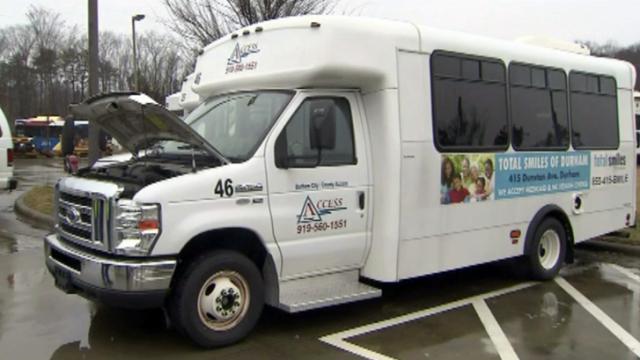Durham Forced To Retrofit Buses
Back in 2011 the city of Durham added a number of hybrid buses to their fleet hoping that they would save money.
They are converting those vehicles back to gas engines:
Durham, N.C. — Durham officials have found it’s not easy being green.
The city decided this week to convert 10 of its hybrid vehicles – light transit vehicles, or LTVs, that transport people with disabilities – back to gas-fueled engines because of maintenance problems. City buses will continue to have hybrid engines.
Troubles With New Technology
Reading through the article I was hooping that we would see numbers on the results – were the vehicles saving money or not. If so, how much per month/year. However, all we got is this:
The savings never panned out, however, as repairs started piling up.
“After about six months, we started having issues with them,” city maintenance manager Scott Mozingo said. “Then, we had issues with parts.”
So, yeah, repairs is a big part of fleet management, however, repairs exist in gas engines as well. I think the nail in the coffin was elsewhere:
In 2012, the company that outfitted the hybrid vehicles went bankrupt, so Durham could no longer get the parts they needed to make repairs.
“We started parking vehicles as they were breaking down because we didn’t have parts for them,” Mozingo said.
I have to believe that if the technology was viable, the company would not have failed leaving Durham in the lurch. I know that all new technologies carry risk for early adopters, but the trend in this alternative energy isn’t new or small.


My problem with this story is the lack of information, and that lack of information leading to people drawing the wrong conclusion.
Definition of Hybrid – (1) something that is formed by combining two or more things; (2) something (as a power plant, vehicle, or electronic circuit) that has two different types of components performing essentially the same function.
If these vehicles are having issues, don’t lump them into the pile with ALL hybrid vehicles. There are gas/electric vehicles, diesel/electric, gas/propane, gas/CNG, diesel/hydraulic, gas/fuel cell… the list goes on and on. HEV’s (Hybrid Electric Vehicle) is a proven model that hybrids work, however, there are many more hybrid vehicles out there that are still in “proof of concept” mode.
Looking at the chassis of these buses, I am inclined to think that these are not an electric configuration. I am not aware of any HEV technology being used in anything other that passenger cars right now. Heavy Duty fleet trucks are still developing hybrid technology, and the hydraulic accumulator tech is some of the most promising. Ford is introducing hydraulic hybrid technology on some fleet and heavy duty vehicles this year, they have been testing for over 10 years before bringing these to market.
http://www.ford.com/commercial-trucks/f650-f750/?searchid=60451383|2396854023|20706993&ef_id=UGdM2wAAE8M2vcB0:20140211192146:s
http://www.designnews.com/author.asp?doc_id=268894&dfpPParams=ind_184,industry_auto,industry_alt,bid_318,aid_268894&dfpLayout=blog
Actually, UPS delivery trucks have been using this tech since 2009, but a company the size of UPS can stand a few losses while testing the technology. And the fact that they had the EPA, the US Army, Eaton and Navistar as partners kind of helped them succeed.
http://www.pressroom.ups.com/Fact+Sheets/UPS+First+In+Industry+to+Purchase+Hydraulic+Hybrid+Vehicles
CNG (Compressed Natural Gas) is another alternative fuel that is a viable, proven option for fleet vehicles. There is a large convenience store chain in this area that is installing the infrastructure and converting all their fleet vehicles to CNG.
http://www.kwiktrip.com/Fuel/Alternative-Fuels/
If this was a private company making these conversions to these buses, well then, I guess all I can say is “buyer beware”. Without factory warranty backing on an unproven technology, they were setting themselves up for trouble. Apparently, someone didn’t do a thorough study on the subject before signing the deal with this company, if they had researched their options, they would have found that there are proven technologies available if you want to “go green”. Shame on them for badmouthing ALL hybrid technology simply because they had a bad experience with one fly by night company looking to make a quick buck.
Shame on them for badmouthing ALL hybrid technology simply because they had a bad experience with one fly by night company looking to make a quick buck.
Yeah, the article was light on info – and yes, emerging techs have a full range of troubles.
I didn’t know they had hybrid buses. In State College Pa. home of Penn State, they began converting their buses to compressed natural gas beginning in 1990s. That would seem to be a better track record than hybrids.